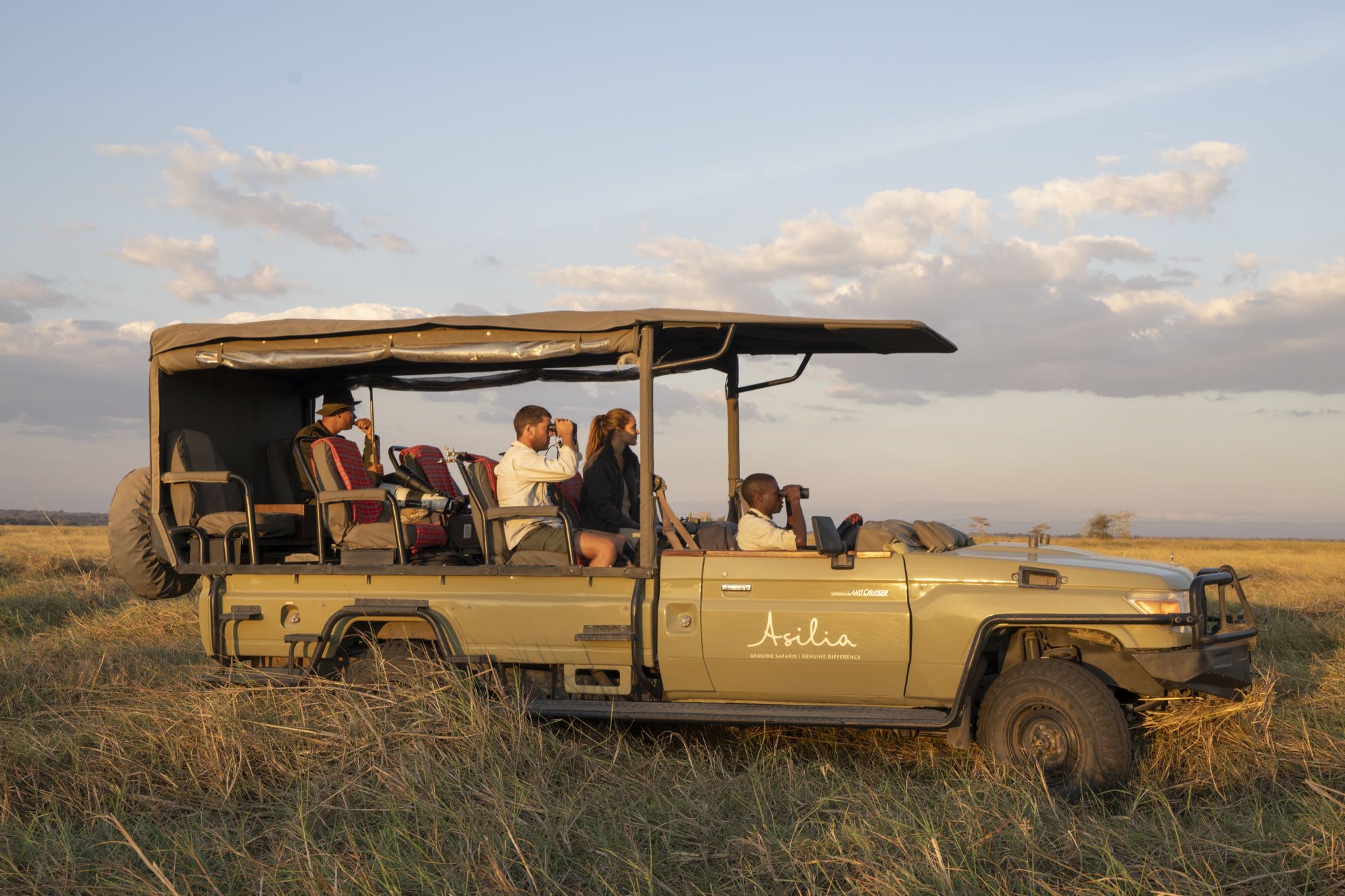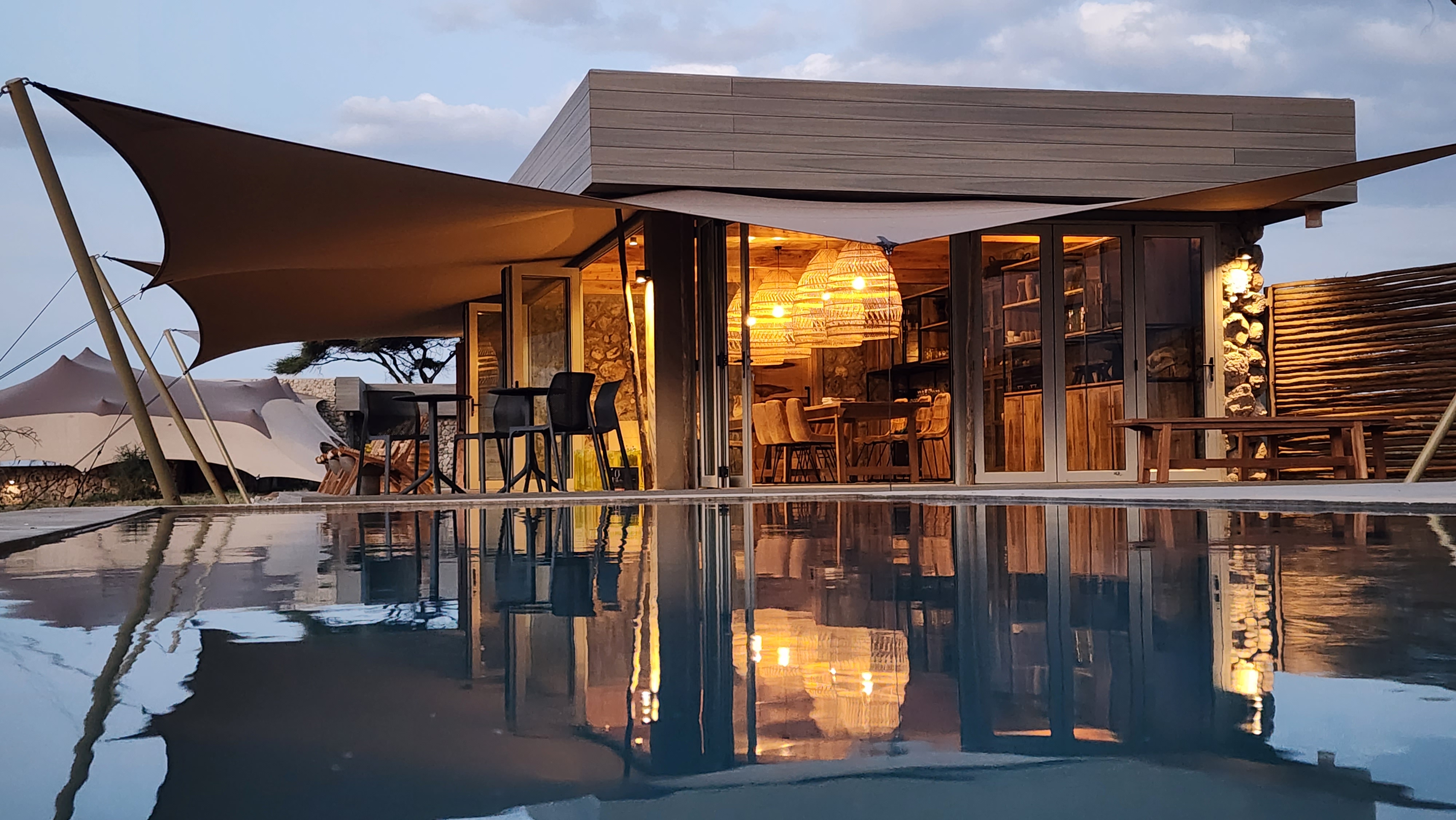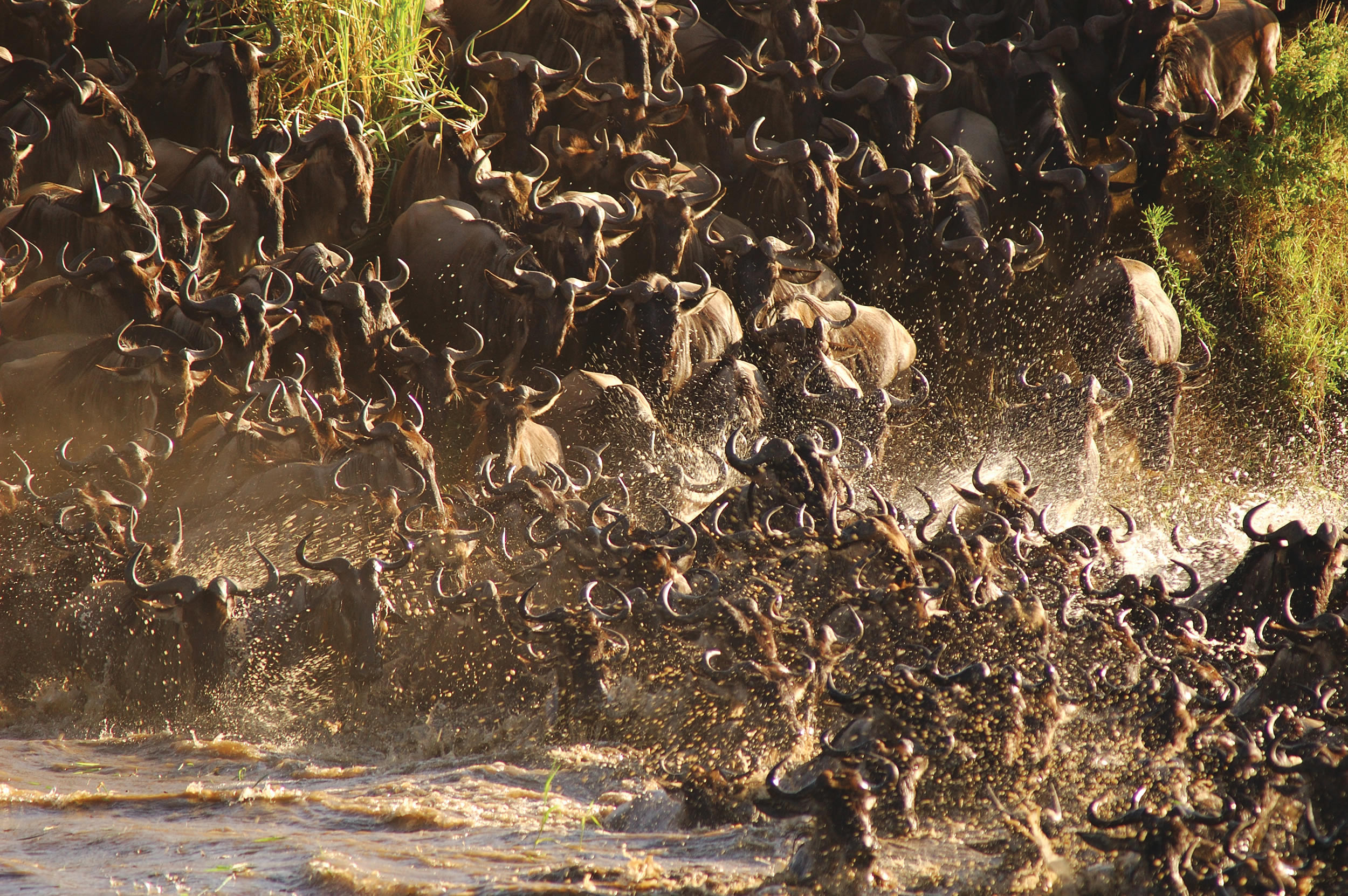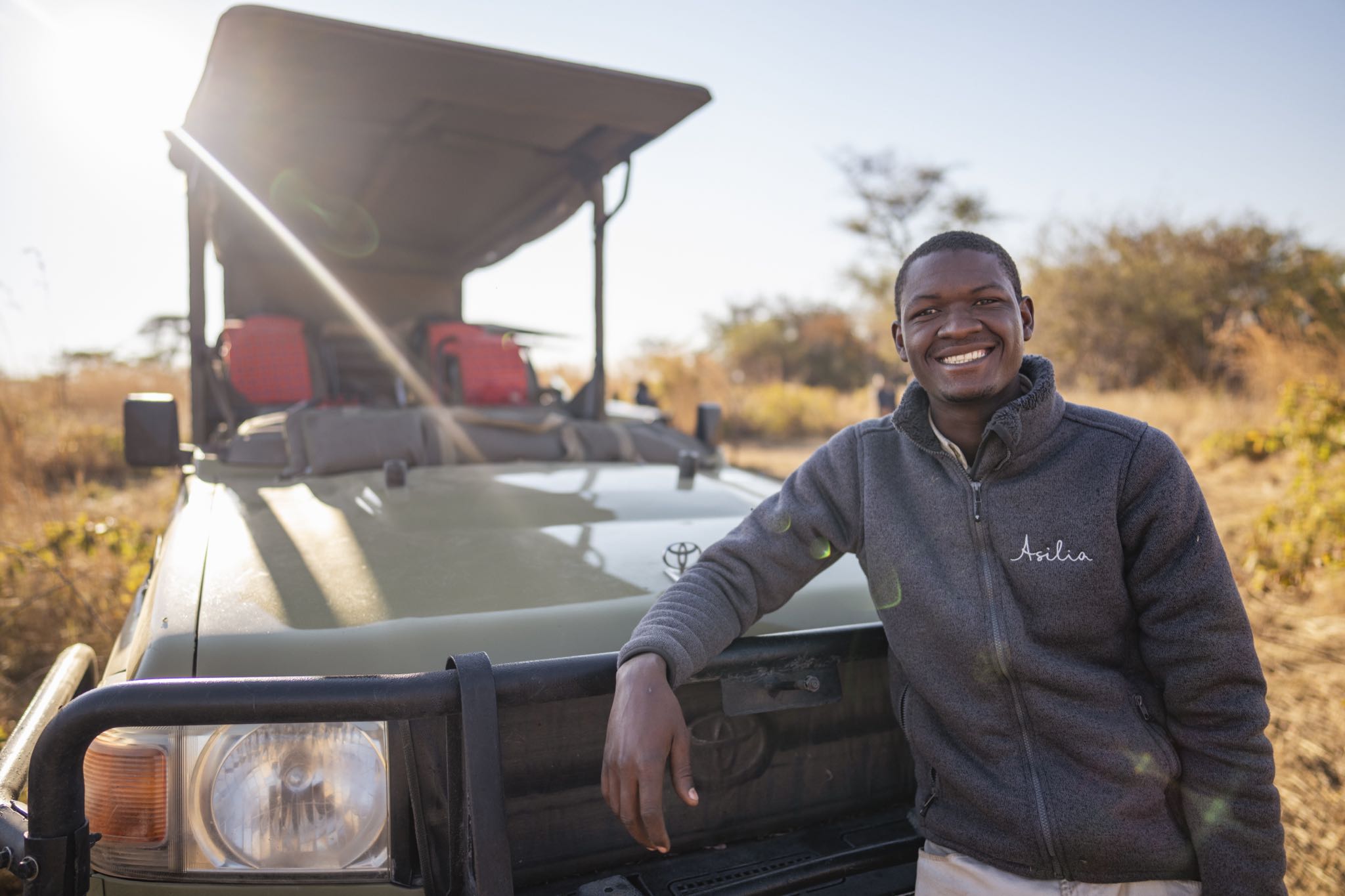How much does it cost to go on safari?
East Africa offers an exceptional tapestry of landscapes, wildlife, and cultures, making it the quintessential destination for a safari adventure. From the endless plains of Tanzania's Serengeti to Kenya's scenic Masai Mara, the incredible experiences that await travellers are priceless. But the reality is that costs play an enormous role in planning that once-in-a-lifetime safari. So, how much does it cost to go on safari?

Safari accommodation costs
There's no simple way to answer the question of how much a safari costs. There are myriad factors at play and things to consider.
The most notable factor that determines the cost of a safari is the accommodation rate. East Africa is brimming with safari lodges and camps of varying levels of luxury. At Asilia, we pride ourselves on offering the most genuine safari experience while not sacrificing comfort. Our camps range from the authentic tented migration camps (Olakira and Ubuntu) to our exclusive Retreats at Namiri Plains and Sayari, catering to various budget options whilst delivering meaningful safari experiences to all.

Namiri Plains Retreat - exclusive-use safari accommodation
Effects of safari seasons on costs
Further to choosing your desired accommodation and level of luxury, another factor affecting safari costs is seasonality. Rates can vary significantly between high season and low season, so let’s explore what this means for you.
High Season
High season is the most expensive time to go on safari. It coincides with the dry season, which creates the best game viewing conditions. This is also when the Great Migration is in full swing, meaning demand is high.
The experience during this time is one where you’re likely to see some gripping wildlife action, but also a lot of other tourists about.
Shoulder Season
Shoulder season is a great time to travel if you're on a mid-range budget or looking to stretch your budget. Get your timing right, and you can have the exceptional wildlife experience usually accompanied by high season pricing and crowds for much less.
For example, late June in the northern Serengeti, November in the eastern Serengeti, or March in the southern Serengeti can still be good for capturing the Migration without the high season pricing. However, it's a bit of a gamble if the Migration is your sole driving force behind your safari experience. But if you’re just looking for a great wildlife experience, this is an excellent time to travel as the weather is good, wildlife viewing is pretty consistent, and the crowds of the high season are not yet in town.
Low Season
April and May offer the best possible rates for a safari. What's the trade-off? You may have some days of bad weather. But you’ll also have few other tourists to contend with and the potential for some good wildlife viewing.
If you’re a solo traveller, this time of year usually sees the single supplement fall away, so a solo safari is more affordable now.

The river crossings of the Great Migration
Getting around
How you choose to get around in East Africa will also have cost implications. Driving exposes you to more of the country and the people, you can stop at markets, talk to people on the side of the road, and get a real feel for local life. That said, the distances can be long and sometimes bumpy.
If it’s just two people travelling, flying can often be more economical than driving, but for three travellers or more, it becomes more cost-effective to drive, if possible. How you choose to get around does also depend on the time you have available.
Last minute vs early bird
Travellers often ask if it’s better to book well in advance or try to snag a last-minute offer. The reality is that if you’re hoping to catch something like the Great Migration, we’d recommend booking well in advance. This ensures that you can book the accommodation you want for the time you want. Things fill up fast for the Migration, so leaving it too late might mean you miss out altogether.
If, however, you are able to wait until the last minute to travel and do not have your heart set on a specific property, you can secure yourself a great value safari. If you book within six weeks of travel with Asilia, you can save 25% on your accommodation, which is a significant saving.
Other costs to consider
Like most things in life, there are usually additional costs that can be easy to overlook. The following are essential safari costs that need to be taken into account:
- Visas
- Park and conservation fees
- Vaccinations and health precautions
- Tips and gratuities
Costs of a safari with Asilia
While we can’t offer an accurate cost for a safari until we know your exact requirements, budget, and timings, we can give you an indication of what a safari with Asilia might cost. Please note that these are estimates only. For an accurate idea of the costs of a safari, please get in touch with our team today.
As an idea, our safaris start from around US$5000 per person based on one week in low season, but can vary significantly depending on the level of luxury accommodation you’re looking for, the season you are travelling in and the logistics.
Once you factor in park fees, getting to and from the national parks and accommodation costs, costs start from around US$800 per person per day in low season in our more affordable camps (such as Encounter Mara), up to around $2200 per person per day in high season at our more luxurious camps (such as Namiri Plains). We have various itineraries on our website to give you an idea of costs for different styles of camps and different seasons, such as Mara Uncovered and Great Migration Adventure. These are just ideas, rather than fixed departure trips.

The warm hospitality of an Asilia safari makes all the difference
FAQ
Is it cheaper to book a safari yourself?
No. It isn't always possible to book your safari yourself. In fact, we wouldn't recommend it. Your safari expert has specialized knowledge of flight schedules, distances, and the intricacies of ensuring a safari runs without a hitch.
Is a safari worth the cost?
When you travel with Asilia, you get a genuine safari experience, award-winning accommodation, exceptional guides (we train some of the very best in the business) and an experience of East Africa like few others.
Add to that, your safari with us allows us to do what we love most – empowering the people and wild places of East Africa through our Positive Impact programmes. An Asilia safari will enable you to travel with purpose, feel closer to the warm heart of East Africa's people, and experience moments of wonderment to look back on forever.
More Planning Your Trip Articles

What’s the difference? National Parks, Game Reserves, and Conservancies in East Africa
02 February 2020To most of us, a national park, game reserve, or conservancy are all the same...

Naboisho: Home To The Mara’s Newest Pool
28 November 2019Naboisho is now home to the Mara Naboisho Conservancy’s newest pool. During t...

Guest Blog: A Culinary Journey Through Asilia’s Naboisho Camp
20 November 2019I had the pleasure of visiting Asilia’s Naboisho Camp earlier this year for a...

Last-Minute Christmas Trip Planning? Where To Stay This Festive Season
15 November 2019It's that time of the year when festive season travel plans have been booked...





